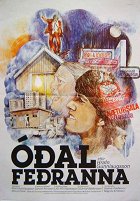Rendező:
Hrafn GunnlaugssonForgatókönyvíró:
Hrafn GunnlaugssonOperatőr:
Snorri ÞórissonSzereplők:
Gudrun Thordardottir, Holmfridur Thorhallsdottir, Jakob Thor Einarsson, Johann Sigurdarson, Magnus Olafsson, Sveinn M. Eidsson (több)Tartalmak(1)
Father's Estate caused more public and journalistic controversy than any other Icelandic film had ever done. This was the first time a film held up a starkly realistic mirror to modern times in Iceland, struck out against the long-held romantic view of the countryside, the pervasive power of the cooperative societies, the bondage of the land and the great deception that men are better Icelanders for eking out their lives in the country. The political message of Father's Estate may be summed up in one phrase: It is not the farmers who own the cooperative societies, it is the cooperatives which own the farmers. In Father's Estate, Hrafn Gunnlaugsson shows us the reverse side of an often-flipped coin. Icelandic authors had for years deplored the fate of those who left the delightful countryside for the inhospitable towns. In Father's Estate, the pleasure of rural life have become a nightmare and the tragedy lies in not being able to get away, to be chained to the land, a prey to poverty and social isolation, on a farm so small it should long since have been abandoned. (forgalmazó hivatalos szövege)
(több)Galéria (6)
Photo © F.I.L.M.

